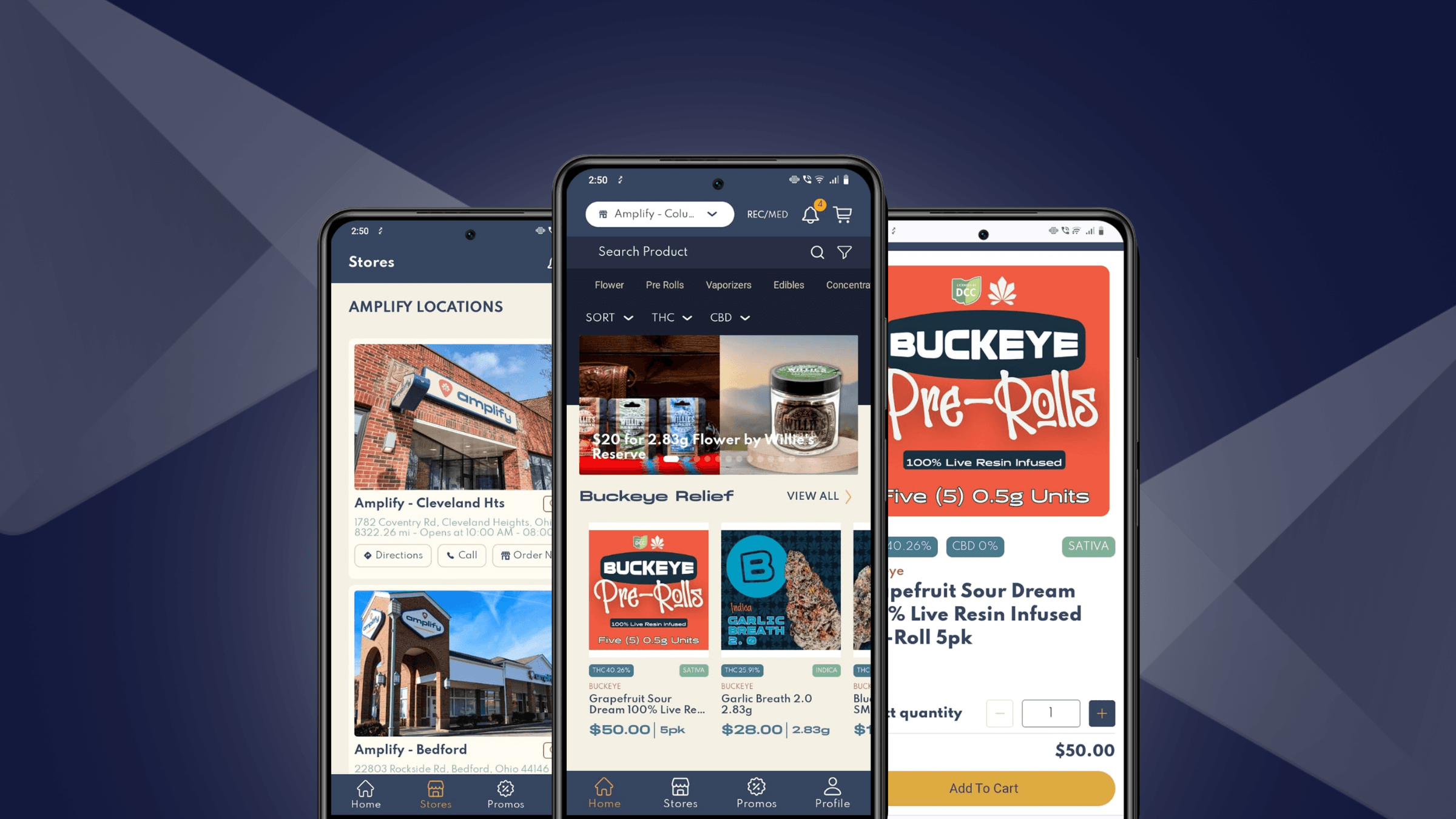

Cannabis App Development
David vs Goliath: How Small Weed Businesses Can Compete With Retail Giants
Posted by: Nikki Tabberrah
January 30, 2023
With the cannabis industry continuing to grow, small businesses are struggling to compete with well-funded and large cannabis retailers. In order to stay relevant, small cannabis businesses must explore new strategies and ways to compete effectively with their larger counterparts in 2023 and beyond.
4 Ways Small Weed Businesses Can Succeed In The 2023 Cannabis Space
Niche Out
One potential solution for small businesses would be to focus on developing a niche market. They can tap into a specialized consumer base that will be willing to pay premium prices for quality goods or services.
To put things into context, a niche market differs from a target market. And knowing the difference between both can make all the difference. As Firepol marketing would put it, a target market is a group of people who can afford to buy your product. And a niche market is the group of people who will actually buy them.
Two ways you can develop & target niche markets:
Targeted Product Selection
When it comes to product selection, small businesses can create unique offerings that set them apart from larger retailers. For example, they can focus on high-end products such as artisanal edibles, premium CBD oils or high-end accessories. This would allow them to provide a higher quality of goods than their competitors and build a loyal customer base who are willing to pay for these unique items.
Much like how Seth Rogen's boutique cannabis and home goods brand stood out, they focused on developing premium cannabis and accessories that fit into an elevated weed lifestyle. Their aesthetics, products and overall approach is so unique, they totally stand out from the crowd.
Small businesses should also consider offering specialized services specifically tailored towards their niche market. For instance, they can offer personalized consultation services with budtenders or in-store demonstrations of their products which cannot be found elsewhere.
By creating an experience that is tailored to each customer’s needs, small businesses will be able to attract customers who are looking for something more than just the standard offerings of larger retailers.
Targeting Niche Interests
Take the cannabis brand Neighborhood Essentials for example. They niched out by selling weed-themed apparel. This method allowed the brand to create awareness and pique consumer interest in a fashionable way. By selling fashion pieces that resonate with a group of enthusiasts, they're able to capture their intended buyers without much friction.
This shows that speciality retail stores have been successful in dipping their toes in niche industries. This approach could also provide great opportunities for small cannabis retailers if they were able to capitalize on this growing trend.
Go Digital
Another strategy that could help smaller retailers is leveraging digital technologies. As technology continues to evolve over the next few years, it is likely that more customers will turn to mobile online shopping platforms.
Smaller retailers should take advantage of this shift by investing more resources in creating a powerful digital presence through an app for your dispensary, ecommerce sites, social media platforms, targeted advertising campaigns, and other digital marketing initiatives. These efforts could help draw more attention to smaller retailers from potential customers who may not have heard of them otherwise.
We've mentioned Cannabis mobile app development. Sounds expensive right? But contrary to popular belief, there's a way smaller retailers can afford cannabis mobile app development. Digital Awesome set out a subscription-based cannabis mobile app development model to make digital transformation easy without hurting your bottom line.
The subscription-based app product gives your brand its own mobile home. Get a fully branded app with seamless m-commerce functionalities, a fully-integrated rewards program, content marketing and frictionless advertising features among many others for 80% less than traditional mobile app development.
With it, brands can transform occasional shoppers into loyal customers who rave about your store. Brands can also boost their average purchase amount while still keeping prices competitive. Learn more about it by requesting a FREE demo today.
Focus on Quality
Smaller retailers should also consider focusing on offering higher-quality products than what is available from bigger companies. Customers often value quality over quantity when it comes to buying goods and services, so by investing more in research and development of better products than what’s currently available from competitors, smaller businesses can make sure that their offerings stand out from the crowd.
These offers go beyond uniqueness or novelty, producing quality goods means putting customers first. Whether they’re after reliable, safe options or consistent products, meeting expectations begins with keeping them away from any potential chemical and biological dangers. But that doesn't stop there - you'll also want to focus on improving operational processes in order to deliver better results each and every time.
This approach can help improve customer loyalty as customers may be more likely to continue buying from a reputable source if they know they’re getting a good product each time they purchase something new.
Build an Alliance
Finally, smaller cannabis companies should consider forming strategic partnerships with larger business entities in order to gain access to their supply chain networks and marketing resources. This would allow smaller companies the opportunity to reach a wider audience while still maintaining control over their own operations and processes.
Here are some interesting partnership ideas that brands can take inspiration from:
Co-brand with the food & beverage industry
In the last few years, co-branding cannabis with food and beverage industries has become a popular trend in the legal cannabis market. This is largely due to the growing demand for cannabis-infused products and the potential of these products to bring new customers into the industry.
Co-branding involves two or more companies coming together to create a product that is mutually beneficial. In this case, it would involve a food or beverage company partnering with a marijuana business to create a unique product that combines the flavors of both companies’ offerings. The result is often an exciting and innovative product that appeals to both existing and potential consumers.
The benefits of co-branding cannabis with food and beverage companies are numerous. For starters, it allows marijuana businesses to tap into a well-established customer base and reach new customers who may not have been interested in cannabis otherwise. It also gives marijuana businesses access to larger distribution networks than they could manage on their own, which can help them get their products into more stores faster.
Additionally, co-branding can provide valuable marketing opportunities, as food and beverage companies often have strong branding strategies that can be leveraged by marijuana businesses to boost visibility and grow their customer base even further.
One example of successful co-branding between a food and beverage company and a cannabis business is between an Oregon-based chain of dispensaries, Serra with local coffee producer Stumptown coffee to make a coffee-infused caramel edible. And with Jacobson Salts, to produce salted caramel edibles.
Co-branding cannabis with food and beverage companies has also become attractive for F&B investors due to its ability to capitalize on existing markets while also introducing people to something completely new at the same time. This combination provides investors with an opportunity for growth as well as potentially higher returns compared to investing solely in either the food or beverage industries alone.
Overall, co-branding cannabis with the food and beverage industry has become an increasingly popular trend in the legal marijuana market due to its ability to reach new consumers while tapping into existing markets simultaneously.
Celebrity Partnerships
Working with celebrities is another way for cannabis brands to get their products into the homes of avid consumers. From music icons, Hollywood stars and sports legends – these powerhouses can bring a sparkle of star power that could take any brand up several notches on the popularity scale. This type of partnership offers many benefits, such as access to well-established networks and resources; top quality production standards from celebrity partners; plus potential huge sales figures thanks to fan loyalty.
Martha Stewart CBD x Canopy Growth
Cannabis connoisseur Martha Stewart is continuing her legacy as a multi-talented woman with the release of her own CBD line. In 2020, she launched products ranging from gummies and oil drops to soft gels featuring hemp-derived cannabidiol enrichments. To further expand into the industry, Martha coupled up with Canopy Growth - one of North America’s leading cannabis manufacturers - where she acts as Strategic Advisor while also leveraging relationships around the world for an extensive reach in knowledge on CBD.
While she took on the role to provide strategic support, it’s undeniable that this announcement brought valuable traction to the cannabis brand. Smaller businesses can mimic the same approach by doing influencer collaborations or partnering with growing celebrity cannabis brands.
App Service Collaborations: Uber Eats x Leafly in Canada
In North America, users 19+ can order cannabis from licensed retailers directly on the Uber Eats app, and have it delivered to their door. This ground-breaking partnership between Leafly and Uber Eats is making history.
Users just need to head over to the app, select 'Cannabis' or search for their retailer of choice, proceed with online checkout then wait until delivery arrives. CannSell certified staff will be doing all deliveries since independent third-party personnel cannot handle this task according to regulations.
Partnerships like these could potentially enable small companies to benefit from economies of scale by sharing resources with larger partners already established in the marketplace – something which wouldn't be possible without these types of alliances.
In a Nutshell
There are many practical strategies which small cannabis businesses can implement in order to stay competitive against large corporate giants in 2023. Focusing on niche markets, utilizing digital technologies for marketing purposes, providing higher-quality products than their competitors and forming strategic partnerships are all viable options which should be considered when trying to remain competitive within this increasingly crowded marketplace.
With careful planning and dedication towards achieving success within this space – just like any other industry – smaller companies have an excellent chance of thriving even amidst competition from larger entities who might have deeper pockets but lack the same level of ambition or creative innovation as their smaller counterparts do.
Articles You May Like

7 Ways to Maximize Your App ROI This Green Wednesday

What the Cannabis Industry Can Learn From Nike

Android Users Are Ready to Spend. Is Your Dispensary Ready?
